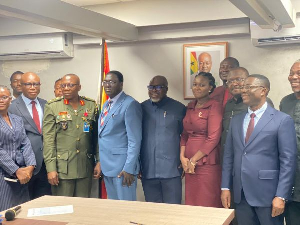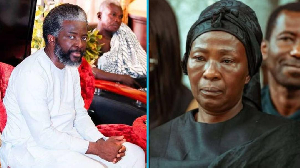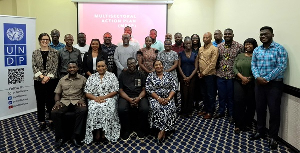Opinions of Thursday, 14 May 2020
Columnist: Kwaku Antwi-Boasiako
Wasteful official foreign travels must end with coronavirus
One of my crazy wishes has been a day when a Ghanaian President will ban all non-critical travel by ministers and senior civil and public servants from traveling abroad for at least two years so that they will all stay in the country and work!
Whenever I’ve expressed this wish, I’ve had a feeling I’m the only one who believes this is either feasible or necessary. The COVID-19 pandemic has shown that this is both feasible and necessary.
First, anybody who has dealt with a government Ministry, Department and Agency (MDA) would be familiar with frustrating situations where your document lies on the desk of a Minister, a Chief Director or another senior official who is said to have traveled abroad for a conference, a meeting, a training or for any host of reasons.
Quite often, as a business person, you’d argue that a particular overseas travel is completely needless, farcical and a waste of State resources. But it’s even more annoying when a particular Minister or official seems to love foreign travels while their ‘In’ tray gets full and the private sector gets frustrated.
The usual retort business people throw at such people to assuage their anger is to accuse such officials of travelling on State-funded private holidays and enjoying the per diems that come with such travels. Whether or not such accusations hold any water, the fact is that anytime an official is out of the country while government business is not going on smoothly, the private sector (the so-called engine of growth) gets affected and the economy as a whole gets affected.
One question is, didn’t anybody teach delegation to our government officials? Why is the public sector so set up to rely on the physical presence of only one person in the office for a whole institution to work efficiently? Why should we not make it mandatory for officials to hand over to their deputies to carry out official assignments while the substantive official is junketing around the world?
And even more importantly, why in God’s name should we not be able to use modern technology to allow Ministers and other top officials to be able to work from anywhere in the world digitally? Why should a contractor stop every work because his payment cannot be processed due to the fact that one official has travelled out of Ghana?
The key question is, what has our government officials been doing since COVID-19 led to the cancellation of all foreign travels? Are they not working? Are they not able to hold Zoom meetings with their counterparts in other countries? From the President of the Republic to the Finance Minister and officials down the bureaucracy, everybody is successfully conducting official business with their counterparts across the world using videoconferencing or other facilities.
So why have we been spending millions of dollars each year on foreign travels and frustrating efficient business activity within the economy with the absence of officials, when we could all this while have opted for the virtual alternatives?
As a citizen, I urge President Nana Akufo-Addo or whoever succeeds him as President, to maintain the current ban on foreign travels even after the COVID-19 pandemic. In fact, given the urgency with which the country would have to work to revive the economy, the post-Coronavirus period would more than ever require the government to be super-efficient in facilitating the private sector to rescue our economy.
And that would mean government officials must stay in Ghana to work unless they can convince the Chief of Staff that whatever business they have to do abroad is impossible to conduct virtually. We can’t do business as usual and expect our economy to bounce back, even within the three years that the Finance Minister has projected.
The author, Kwaku Antwi-Boasiako is Chief Operating Officer at Vintage Ventures Limited in Accra. He has senior management experience in diverse industries. He has an MBA from the University of Leicester, after his BSc. Administration from the University of Ghana.














